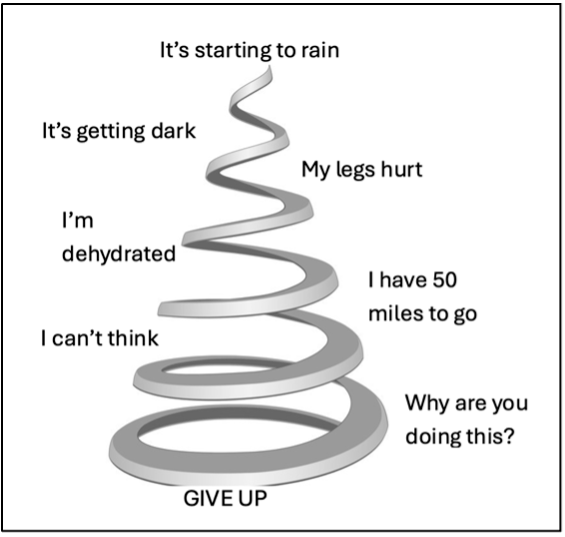We use cookies to improve your online experiences. To learn more and choose your cookies options, please refer to our cookie policy.


Challenges are an inevitable part of life, testing us in various ways and pushing us to adapt and grow. Our ability to navigate these challenges and bounce back from adversity is what defines resilience. It's not just about facing challenges; it's about how we respond to them. However, the term "resilience" is often thrown around without a full understanding of its meaning. Even I have been guilty of this, asking students to "show resilience" without fully explaining what it entails. Instead, we should focus on teaching younger generations how to achieve resilience in their lives. In this blog, I'll share some strategies that have helped me overcome challenges, in the hope that they can be applied by anyone facing their own obstacles.

My interest in the term ‘resilience’ grew from my experiences as an ultra-marathon runner. Since the COVID-19 pandemic, I've taken up long-distance running, progressing from marathons to ultra-marathons. This summer, I'm gearing up to run 250 miles across the Swiss Alps. People often ask me why I do it, and I've found that my reasons for running ultra-marathons mirror the motivations behind any personal challenge we undertake, whether it's applying for college, facing exams, or learning something new.
So why do we take on personal challenges?

Strategy 1: Stay Present
In my journey of running ultra-marathons, I've found that "staying present" is a crucial strategy. Often, when we face challenges, we're consumed by thoughts of the steps needed to reach our goals. Whether it's writing essay chapters or mastering a new language, focusing solely on the result can be overwhelming. During a 100-mile race, I remember watching my running watch tick down the miles: "43 miles to go, 42 miles to go, 41 miles to go." Each mile seemed more daunting than the last, sapping my motivation. That's when I made a crucial decision to switch off my watch and practice the art of 'staying present'. Achieving presence of mind is best facilitated through mindfulness techniques. Personally, I found comfort in focusing on my breath and performing 'body checks'. Body checking involves tuning into your physical sensations without judgment. During moments of stress, directing attention to the parts of your body that feel strong can ground you in the present moment, fostering resilience.
Strategy 2: Flip the Script
Our minds wield immense power when confronting challenges, but they can also be our own worst enemy. Negative thoughts have a way of spiraling out of control, leading us to doubt our abilities and ultimately sabotaging our efforts. I like to think of this as a "negativity thought spiral".

To counteract this, I suggest "flipping the script". By reframing our thoughts and language in a positive light, we can combat negativity head-on. In my experience, I attempted to frame negative thoughts as positive ones: ‘rain becomes a refreshing cool-down’, ‘darkness signifies the exciting part of the journey’, and ‘the pain in my legs is a testament to my endurance’. Confronting negative thoughts with positive affirmations empowers us to build resilience in the face of adversity.
Strategy 3: Acknowledge
Sometimes, it's challenging to completely reverse negative thinking. In these moments, acknowledging the negative thought is a powerful first step towards overcoming it. Viewing our thoughts and beliefs as constructs of reality rather than absolute truths grants us agency over our mental landscape.

During my first 100-mile race, I found myself slogging through a relentless storm in the dead of night. With 30 long hours already under my belt, the next checkpoint felt both within reach and impossibly far, just an hour away. Every step was a battle against fatigue, and for the first time, doubt crept in.
As the rain poured down and the wind howled around me, the idea of warmth and dryness started to sound tempting. I couldn't help but think about calling it quits and finding shelter from the storm. At that moment, giving up seemed like the easy way out, and the idea of falling short left me feeling deflated. This negative thought allowed me to believe that this would happen. So, I used this strategy of acknowledging my thought as an image created in my mind, not a construct of reality. I like to liken our thoughts to passengers on a bus, with ourselves as the driver. While we may not be able to silence or control every thought, we retain the power to determine our actions. Will we succumb to our thoughts, or will we steer the course towards our destination, despite the distractions?
